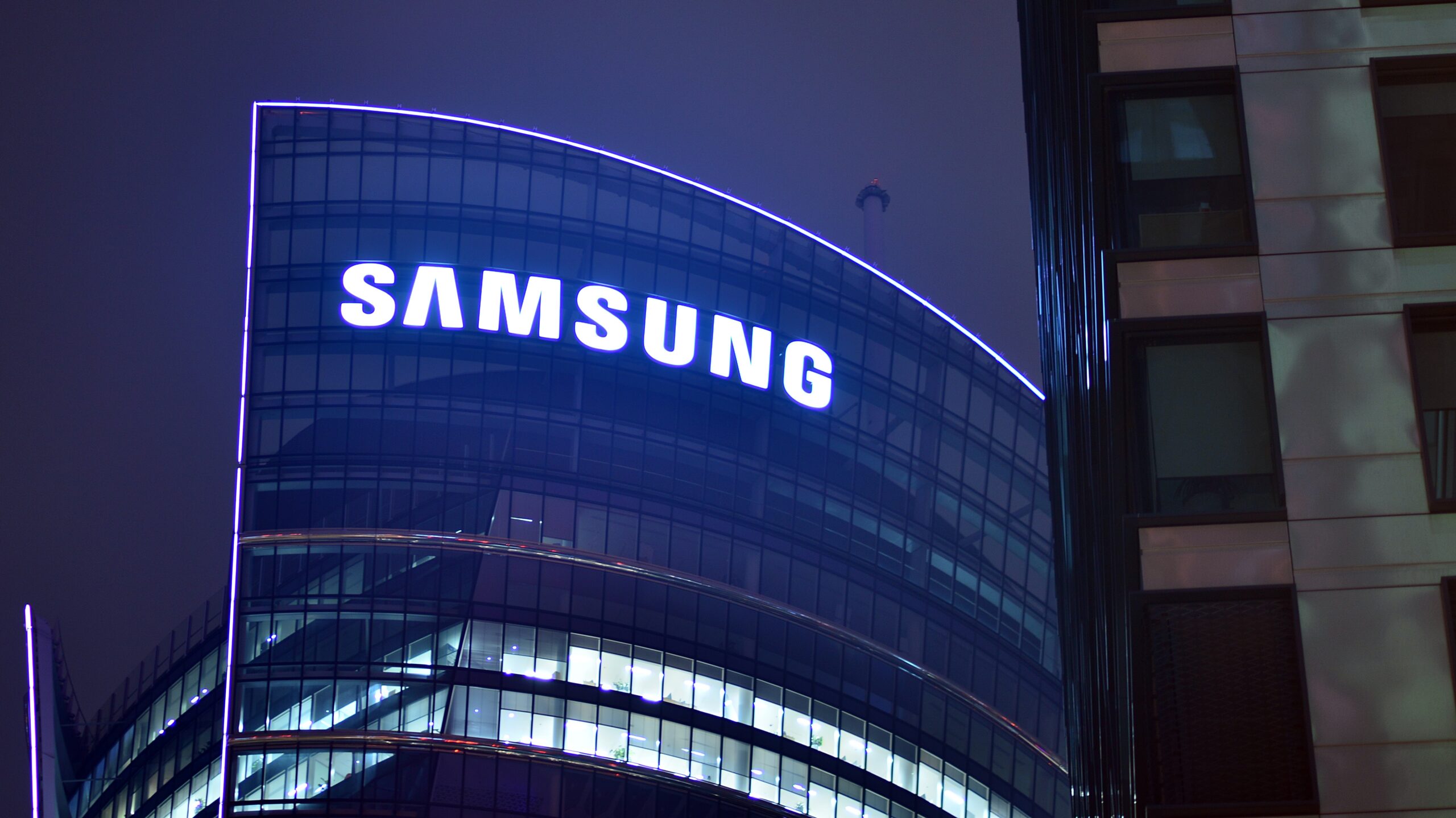As you navigate the complex world of global business, you may find yourself caught between corporate strategies and regulatory scrutiny. Such is the case with Samsung and its recent challenge to India’s antitrust tactics. The tech giant has accused the Competition Commission of India (CCI) of overstepping its bounds during a 2022 raid, alleging unlawful detention of employees and seizure of confidential data. This confrontation stems from an investigation into exclusive online product launches, which the CCI claims violate competition laws. The ensuing legal battle not only highlights the tensions between multinational corporations and Indian regulators but also raises critical questions about compliance and business practices in one of the world’s fastest-growing e-commerce markets.
Samsung And The Antitrust Allegations Against India’s CCI

Samsung: Antitrust Accusations of Unlawful Conduct
The tech giant, Samsung, has leveled serious accusations against India’s Competition Commission (CCI). The company claims the regulatory body engaged in unlawful practices during a 2022 raid. Samsung alleges that CCI officials illegally detained its employees and seized confidential data. The company argues these actions overstepped the agency’s authority. These allegations strike at the core of the ongoing antitrust investigation. The investigation involves Samsung and major e-commerce platforms like Amazon and Flipkart.
Legal Counteractions and Injunctions of Samsung Antitrust Allegation
In response to the CCI’s probe, Samsung has taken decisive legal action. The company filed a petition in the Chandigarh High Court, seeking to invalidate the investigation’s findings and demanding the return of seized data. This bold move underscores the gravity of Samsung’s concerns about the CCI’s methods. The High Court’s decision to issue an injunction, temporarily halting the CCI’s proceedings, marks a significant development in this high-stakes legal battle.
Implications for E-commerce and Regulation
This confrontation between Samsung and the CCI highlights the growing tensions between multinational corporations and Indian regulatory bodies.India’s e-commerce market is expanding rapidly. The outcome of this case could have far-reaching implications for how companies operate. It may also affect compliance with antitrust regulations in the country. The dispute raises important questions about regulatory oversight. It also highlights the balance between oversight and corporate rights in a dynamic economic environment.
The CCI’s Investigation into Exclusive Online Launches
Background of the Probe Towards Samsung Antitrust Allegation
The Competition Commission of India (CCI) launched a comprehensive investigation into the smartphone industry’s practices, focusing on exclusive online product launches. This probe aimed to examine whether such practices violated competition laws and disadvantaged traditional retailers. The CCI’s actions were prompted by concerns that major smartphone manufacturers, including Samsung, were collaborating with e-commerce giants like Amazon and Walmart’s Flipkart to create an unfair marketplace.
Samsung Antitrust: Controversial Raid and Data Seizure
In 2022, the CCI conducted a raid on Samsung’s offices, which has since become a point of contention. During this operation, the antitrust watchdog allegedly detained Samsung employees and seized confidential data. These actions have been described by Samsung as unlawful, leading to a legal challenge against the CCI’s methods and findings.
Legal Implications and Industry Impact
The investigation’s conclusion that Samsung and other manufacturers violated competition laws has far-reaching implications for the Indian e-commerce landscape. It highlights the growing tensions between multinational corporations and Indian regulatory bodies. The outcome of this legal battle could significantly influence how tech companies operate in one of the world’s fastest-growing digital markets, potentially reshaping strategies for product launches and partnerships with online platforms.
Samsung and The Legal Challenge: Seeking to Annul the Findings
Samsung has taken a bold step in confronting India’s Competition Commission (CCI) by filing a legal petition in the Chandigarh High Court. This move aims to invalidate the CCI’s investigation findings and recover confidential data seized during a 2022 raid. The tech giant’s actions highlight the growing tension between multinational corporations and Indian regulatory bodies.
Samsung Antitrust Allegations of Unlawful Conduct
Samsung’s petition accuses the CCI of overstepping its authority during the raid. The company claims that CCI officials unlawfully detained its employees and confiscated sensitive information. These allegations raise serious questions about the methods employed by regulatory agencies in their investigations.
Temporary Injunction and Ongoing Proceedings of Samsung Antitrust Allegation
In response to Samsung’s petition, the Chandigarh High Court has issued a temporary injunction, effectively halting the CCI’s proceedings. This legal maneuver buys Samsung time to build its case and potentially nullify the investigation’s conclusions. However, the court has yet to rule on the return of the seized data, leaving this crucial aspect unresolved.
Implications for E-commerce and Competition Law
This legal battle underscores the complexities of operating in India’s rapidly expanding e-commerce market.Regulators are scrutinizing exclusive online product launches and collaborations between manufacturers and platforms. Companies like Samsung face a challenging compliance landscape. The outcome of this case could set important precedents for antitrust investigations. It may also shape the relationship between global tech firms and Indian authorities.
The High Court’s Injunction and the Ongoing Legal Battles
Temporary Halt to CCI Proceedings
The Chandigarh High Court’s decision to issue an injunction is a significant development in Samsung’s legal challenge against the Competition Commission of India (CCI). This temporary halt to the CCI’s proceedings gives Samsung a crucial reprieve. It allows the company to regroup and strengthen its legal strategy. However, the court has not yet ruled on the return of the seized data. This contentious issue remains unresolved.
Consolidation of Legal Challenges
In a strategic move, the CCI has approached the Supreme Court to consolidate multiple legal challenges from various companies, including Samsung. This attempt at consolidation underscores the widespread nature of the conflict between multinational corporations and Indian regulatory bodies. The CCI’s action suggests a concerted effort to streamline the legal process and potentially strengthen its position against the collective pushback from these companies.
Implications for E-commerce and Compliance Amid Samsung Antitrust Allegation
This legal confrontation carries significant implications for compliance and business operations in India’s rapidly expanding e-commerce market. The unfolding battle may set precedents for how regulatory bodies conduct investigations. It could also influence how multinational corporations operate within the Indian market. The outcome has the potential to reshape exclusive online product launches and partnerships. It may ultimately impact consumer choices and market dynamics.
Implications for Multinational Corporations in India’s E-commerce Market
Regulatory Compliance Challenges
As multinational corporations navigate India’s rapidly expanding e-commerce landscape, they face increasingly complex regulatory challenges. The Samsung case highlights the growing scrutiny of business practices by Indian authorities, particularly in areas of competition and market dominance. Companies must now reassess their strategies to ensure compliance with local antitrust laws, potentially impacting exclusive partnerships and product launch tactics.
Data Privacy and Security Concerns
The CCI’s alleged seizure of confidential data during its investigation raises significant concerns about data privacy and corporate security. Multinational firms operating in India may need to enhance their data protection measures and develop robust protocols for handling sensitive information during regulatory inquiries. This could lead to increased investments in cybersecurity and legal resources to safeguard proprietary data.
Legal and Operational Adaptations
The ongoing legal battle between Samsung and the CCI underscores the need for multinational corporations to adapt their legal and operational strategies in India. Companies may need to allocate more resources to local legal teams, develop contingency plans for regulatory interventions, and maintain flexibility in their business models. This could involve diversifying distribution channels, re-evaluating exclusive agreements, and fostering stronger relationships with local retailers to mitigate potential antitrust concerns.
Summing It Up
As you navigate the complex landscape of India’s e-commerce market, it’s crucial to understand the implications of this legal battle between Samsung and the CCI. The outcome will likely set precedents for how multinational corporations interact with Indian regulatory bodies and conduct business in this rapidly growing market. Keep a close eye on developments in this case, as they may impact your compliance strategies and operational decisions. Regardless of the final ruling, this situation underscores the importance of maintaining transparent business practices and being prepared to address regulatory scrutiny in an increasingly interconnected global marketplace.
More Stories
Fujitsu, Supermicro, and Nidec Unite to Revolutionize Data Center Cooling Efficiency
In the ever-evolving landscape of liquid cooling data centers, a groundbreaking collaboration has emerged to address one of the industry's...
Alibaba Cloud Unveils Advanced AI Models and Tools to Empower Global Developers
At the 2025 Spring Launch, the tech giant unveiled a suite of advanced AI models and tools designed to empower global developers like you. From the large-scale Qwen-Max to the reasoning-focused QwQ-Plus, these cutting-edge models are now at your fingertips through Alibaba Cloud’s Model Studio.
J.P. Morgan’s AI Leap: Transforming Invoice Reconciliation in the Philippines
As you navigate the ever-evolving landscape of financial technology, J.P. Morgan's latest initiative in the Philippines demands your attention. This...
Taiwan Secures the Skies: Chunghwa Telecom and Astranis Forge Satellite Shield
By partnering with U.S.-based Astranis, the company is set to launch Taiwan’s first dedicated communications satellite. This bold initiative not only demonstrates Taiwan’s commitment to technological advancement but also highlights the growing importance of satellite technology in ensuring network resilience.
ChatGPT o3 Stuns with Real-World Image Recognition, Ignites Privacy Fears
As you explore the latest advancements in artificial intelligence, you may find yourself both amazed and concerned by the capabilities...
Alibaba’s AI Speeds Up Pancreatic Cancer Detection with FDA Breakthrough Status
As you explore the evolving world of healthcare innovation, a major breakthrough in cancer detection now captures global attention. Notably, Alibaba’s research division, Damo Academy, reached a milestone with its AI tool, Damo Panda.


